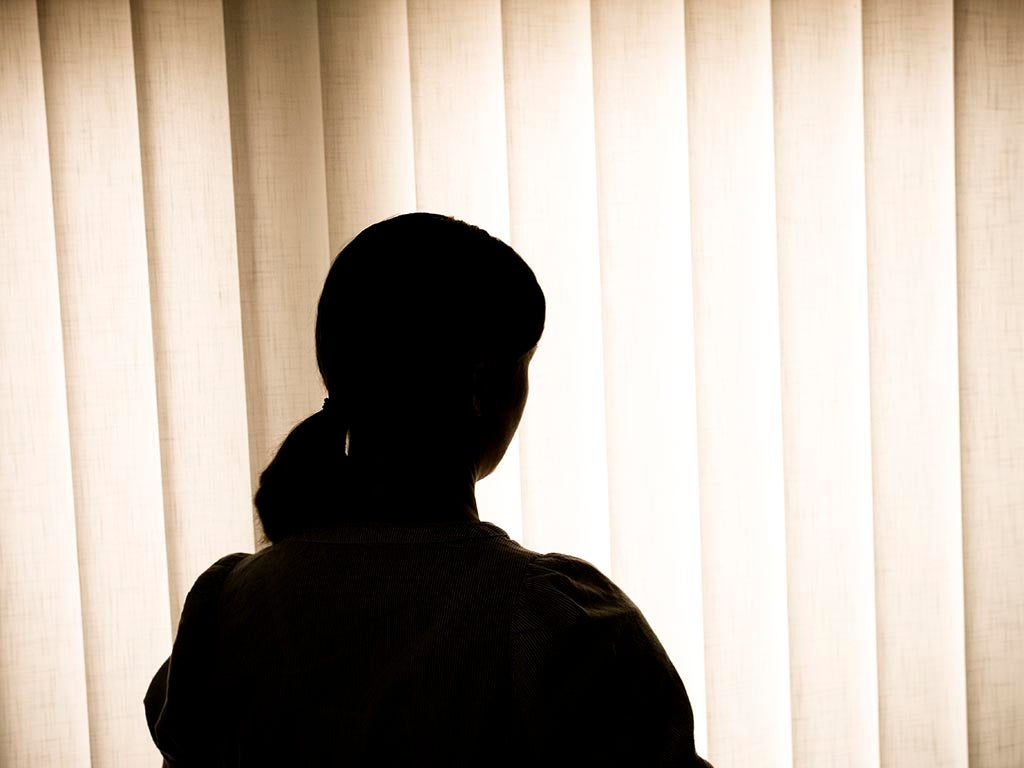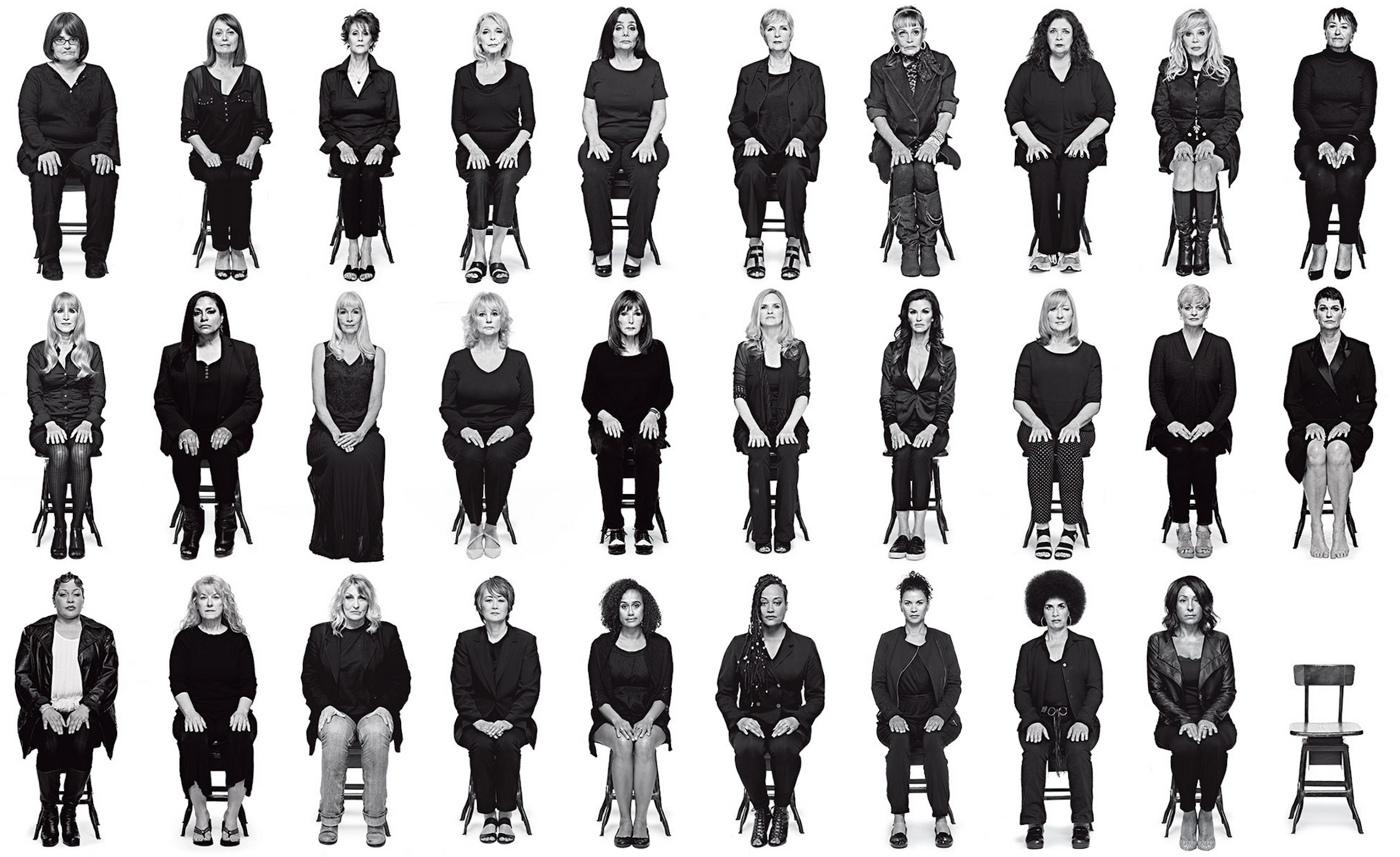How to respond if someone tells you they've been sexually assaulted
We cannot all become trained counsellors, but as the disclosure rate continues to increase, we can educate ourselves and those around us on the basics of how to respond sensitively and help break the silence around sexual assault

Your support helps us to tell the story
From reproductive rights to climate change to Big Tech, The Independent is on the ground when the story is developing. Whether it's investigating the financials of Elon Musk's pro-Trump PAC or producing our latest documentary, 'The A Word', which shines a light on the American women fighting for reproductive rights, we know how important it is to parse out the facts from the messaging.
At such a critical moment in US history, we need reporters on the ground. Your donation allows us to keep sending journalists to speak to both sides of the story.
The Independent is trusted by Americans across the entire political spectrum. And unlike many other quality news outlets, we choose not to lock Americans out of our reporting and analysis with paywalls. We believe quality journalism should be available to everyone, paid for by those who can afford it.
Your support makes all the difference.This week’s New York Magazine surely has its most poignant cover ever, in a piece of remarkable journalism. With the caption: “the unwelcome sisterhood”, the cover shows black and white photographs of 35 of the 46 women whose sexual assault allegations against Bill Cosby span five decades.
One of the women, Barbara Bowman, aged just 17 and trying to make it to the next level in her career at the time of the alleged assaults, describes the feelings about what was happening to her and the invisible bars that she felt trapped by. She said:
I could have walked down any street of Manhattan at any time and said, ‘I’m being raped and drugged by Bill Cosby,’ but who the hell would have believed me? Nobody, nobody.
She is, of course, correct. At that time Cosby was a well-known, much-loved and respected actor, celebrated on a global scale.

Even today, many women are having trouble getting authorities to respond adequately to allegations of sexual violence. The Guardian recently published an investigation into how university students had been let down by their institutions when trying to report their experiences of sexual assault on campus.
So what is the best way to respond if someone does make a disclosure of sexual assault to you? What can you do to help and, importantly, how can you avoid making the situation worse?
Don’t underestimate barriers to disclosing
At Durham University we have been offering training to staff about responding appropriately to disclosures of sexual violence. One of the exercises we ask participants to do is to think about the barriers that students might face when considering disclosing a sexual assault.
For every concern: “Will they believe me if I’ve been drinking?”, “Will the forensic medical examination hurt?”, “Will my parents find out?”, we place a chair in the middle of the room and line them up in a row. By the end of the exercise, participants generally move from wondering why victims don’t report to how anyone does at all.
One of the ultimate fears is that they will not be believed. Kay Davies from Rape Crisis England and Wales works with us on the training and always reminds us not to say: “I just can’t believe [name] would do such a thing, he’s usually such a quiet/intelligent/kind young man”.
In this situation rather than “I just can’t believe it” being interpreted as a figure of speech, it can be interpreted as “I don’t believe you” or “No-one will believe you”. Their worst fears realised in an oft-used phrase.
Don’t panic
It’s an awful fact that rape and other sexual assaults happen every day in every town and city, particularly though not exclusively, to women and girls. Try not to look shocked and panic. Realise that someone has trusted you enough to tell you about one of these daily occurrences that has happened to them.
Feel honoured that they came to you with this important disclosure. If they are telling you about a sexual assault that isn’t recent don’t assume they have already told other people about it even if it happened in childhood – you might still be the first person they are disclosing to.
Don’t ask too many ‘detail’ questions
If a disclosure is made to you and the victim intends to also make a police report, don’t delay the situation by asking too many questions. If a full disclosure is made to you, then you become an important witness and will probably need to give evidence and be cross-examined in court. This means taking notes or having a very good memory. Better to leave it to the professionals and let the police take over with a properly recorded interview.
Even if the victim does not intend to report, you should not ask a lot of questions about the actual assault. Questions such as: “What exactly happened?” or: “What did he do?” can be inappropriate depending on the context and the relationship between the victim and yourself.
The language of sexual assault: “vagina”, “anus”, “semen”, “penis”, or the many slang versions of them, are not words that many people feel comfortable using out loud, especially with people they know only on a professional basis and to people their senior.
Don’t try to ‘fix it’
You can’t fix this – you can’t make it right and you can’t take away the pain.
What you can do is respond in a caring manner: “I’m so sorry this has happened to you”, “What do you need right now?”, “Is there anyone I can call for you?”, “What do you want to happen?”. Don’t make promises that can’t or won’t be kept: “We’re going to make sure that bastard is found and locked up for a very long time.” Try not to show your anger “I’m going to kill him when I get my hands on him”. This isn’t about you and your anger, its about what the victim needs. Centre it on their needs, not yours.
Refer victim to the right place
The main services for victims of sexual offences are Sexual Assault Referral Centres and Rape Crisis Centres, though both also refer to each other.
Sexual Offence Referral Centres, or SARCs, take referrals (including self-referrals) from people who have recently been raped. They are usually run by the police and health services. Forensic medical examinations take place at SARCs and victims can either decide to proceed with a police report while they are there – the SARC will arrange this – or the victim can choose not to make a police report but to have their evidence from the examination stored for the future. This means that if they decide they want to make a police report when they feel stronger, they have the evidence to do so.
If other victims start coming forward against the same offender then the victim might feel more able to be part of a group making an allegation against the same offender than they were as a single complainant.
Contrary to what their name suggests, Rape Crisis Centres do not just work with women who are in crisis, but also women who have been raped a long time – even decades – ago. Many centres specialise in work with women and girls though some work with men.
If someone discloses to you who does not want or need a medical examination because of the time that has passed since the assault, or they want to talk to someone in complete confidence – then this is a useful place to refer them.
We cannot all become trained Rape Crisis counsellors, but as the disclosure rate continues to increase, we can choose to educate ourselves and those around us on the basics of how to respond sensitively.
They came to you, they trusted you – please don’t let them down. Help them – and us – to continue breaking the silence around sexual assault.
Nicole Westmarland is Professor of Criminology at Durham University.
This article was originally published on The Conversation. Read the original article.
Join our commenting forum
Join thought-provoking conversations, follow other Independent readers and see their replies
Comments